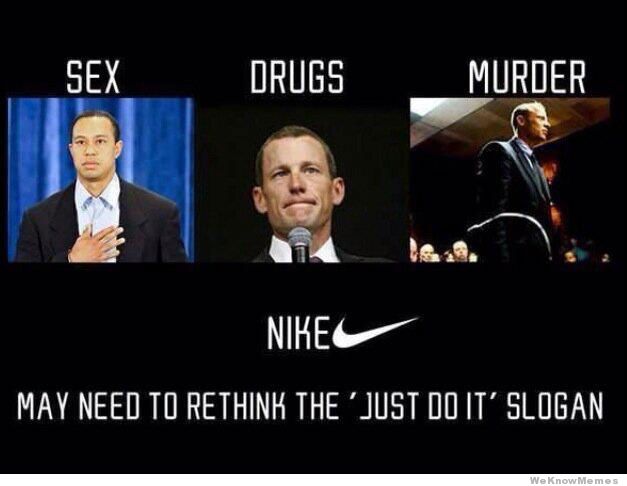
Celebrities may boost a company’s recognition in the public eye and make it seem more glamorous, desirable or elite. However, the star power and publicity they bring to a company can just as easily damage its reputation — even in the case of local celebrities. There is always a liability when you associate your product or service with a particular person.
One need look no further than Nike to see a pattern of human failure in celebrities that were supposed to be immortal. Here’s a list of celebs who have brought negative attention to Nike in the last few years:
Nike, smartly, has dropped 3 of the 4 celebs, Pistorious most recently (though Vick was brought back into Nike’s good graces in 2011). Apparently “Just do it” is okay if it applies to adultery and dog abuse, but not to doping and (of course) murder. But dropping Pistorious and Armstrong hasn’t stopped this meme from floating around the web:
For Nike, the fallout may not turn out to be lethal, but small and midsize companies might not fare as well in similar situations, especially with the speed at which an anti-brand message can be distributed to the community and beyond.
So before you try to recruit a celebrity — whether it’s a pro athlete or the local weatherman — ask yourself: is it worth the risk? And more importantly, is there another way to embody everything your brand stands for? The answer to the latter is likely a resounding “yes”.